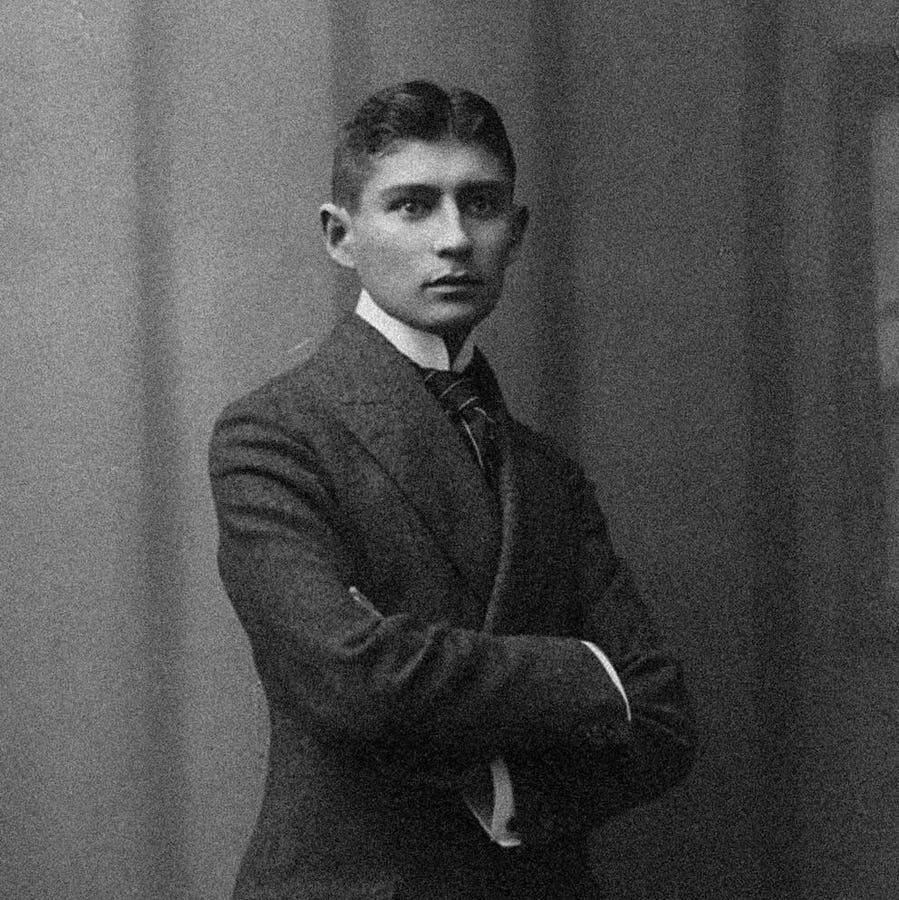Franz Kafka: Exploring the Labyrinth of the Human Condition
Franz Kafka, a literary giant of the 20th century, remains a captivating figure in the world of literature. Born in Prague in 1883, this Austrian-Czech novelist and short story writer crafted a unique and enduring literary landscape characterized by nightmarish scenarios, bureaucratic labyrinths, and the pervasive absurdity of human existence. His works, often described as Kafkaesque, delve into the depths of alienation, existential dread, and the struggle for individual freedom against oppressive forces, both internal and external. Kafka’s writing, though rooted in realism, incorporates grotesque elements that amplify the sense of disorientation and helplessness experienced by his characters. This distinctive blend of the real and the surreal has had a profound impact on modern literature, establishing a unique narrative style that continues to resonate with readers today.
Despite his prolific output, Kafka remained deeply critical of his own work, reportedly destroying numerous manuscripts. He considered much of his writing unsatisfactory, a testament to his relentless pursuit of literary perfection. Ironically, this self-doubt contributed to his posthumous fame. Max Brod, a close friend and literary executor, defied Kafka’s instructions to destroy his remaining unpublished works. Instead, Brod meticulously edited and published these manuscripts, introducing the world to the full scope of Kafka’s genius. The literary landscape would be undeniably impoverished without Brod’s intervention, as Kafka’s works offer a profound exploration of the human condition in the face of an increasingly complex and often indifferent world. His stories resonate with generations of readers who grapple with similar themes of alienation, bureaucratic frustration, and the search for meaning in an absurd reality.
Kafka’s literary legacy encompasses three major novels, a collection of around 40 short stories, and numerous other fragments and parables. While his novels are arguably his most celebrated works, his short stories offer a concise yet powerful distillation of his thematic concerns. "The Complete Stories of Franz Kafka," published in 1971, provides a comprehensive overview of his mastery of the short form. Stories like "The Hunger Artist," "In the Penal Colony," and "A Country Doctor" showcase his ability to create unsettling narratives laden with allegory and symbolism, plunging readers into worlds where the boundaries of reality blur and the familiar becomes strangely distorted. This collection serves as an excellent entry point for those seeking to understand the breadth of Kafka’s genius.
Among Kafka’s novels, "Amerika," originally titled "The Man Who Disappeared," stands as his first, though unfinished, attempt at the longer form. This picaresque tale follows the journey of young Karl Rossmann, exiled to America after a scandalous affair. Karl’s experiences in the New World are a series of bizarre encounters that reflect Kafka’s perception of American society, particularly its emphasis on material success and conformity. Drawing inspiration from travel books and memoirs, Kafka crafted a narrative that explores the allure and disillusionment of the American dream, a theme that resonates even today. "Amerika," while sharing thematic similarities with Kafka’s other works, exhibits a lighter tone, offering readers a more accessible entry point into his complex literary world.
Published in 1926, "The Castle" presents another unfinished narrative, further adding to the mystique surrounding Kafka’s oeuvre. This novel introduces "K.," a land surveyor who arrives in a village dominated by the imposing presence of a castle. K.’s attempts to access the castle, owned by the elusive Graf Westwest, are met with endless bureaucratic obstacles and a pervasive sense of futility. This struggle against an impenetrable and seemingly arbitrary system encapsulates Kafka’s fascination with the dehumanizing effects of bureaucracy and the individual’s struggle against the absurd. "The Castle," with its open-ended narrative and unresolved questions, invites readers to engage in their own interpretations and grapple with the ambiguous nature of power and authority.
"The Trial," published in 1925, is perhaps Kafka’s most chilling exploration of the individual’s vulnerability within a bureaucratic nightmare. Josef K., a bank officer, is arrested and prosecuted for an unknown crime, a crime that remains shrouded in mystery throughout the novel. As Josef navigates the labyrinthine legal system, he encounters a cast of characters who embody the arbitrary and incomprehensible nature of power. Kafka masterfully creates an atmosphere of paranoia and dread, highlighting the individual’s powerlessness in the face of an oppressive and ultimately absurd system. "The Trial" serves as a potent allegory for the anxieties of modern life, where individuals can feel trapped by forces beyond their control.
Finally, "The Metamorphosis," published in 1915, stands as Kafka’s most iconic work. This novella recounts the surreal transformation of Gregor Samsa, a traveling salesman, into a monstrous insect. Gregor’s physical metamorphosis becomes a powerful metaphor for alienation, isolation, and the breakdown of human connection. As he struggles to adapt to his new form, Gregor’s family undergoes its own transformation, revealing the complex dynamics of familial relationships and the burdens of responsibility. "The Metamorphosis" remains a timeless exploration of the human condition, offering a poignant reflection on the fragility of identity and the search for meaning in a world that often feels alienating and absurd.
In conclusion, Franz Kafka’s literary legacy continues to resonate with readers across generations. His exploration of themes such as alienation, bureaucratic absurdity, and the search for meaning in an indifferent world remains remarkably relevant in the 21st century. While his own self-doubt led him to undervalue his work, his posthumous fame solidified his place as one of the most influential writers of the modern era. Kafka’s narratives, with their blend of realism and the grotesque, offer a profound and unsettling glimpse into the complexities of the human condition, prompting readers to confront the often-absurd realities of their own existence. His works remain a testament to the power of literature to explore the deepest recesses of the human psyche and to challenge our understanding of the world around us.


